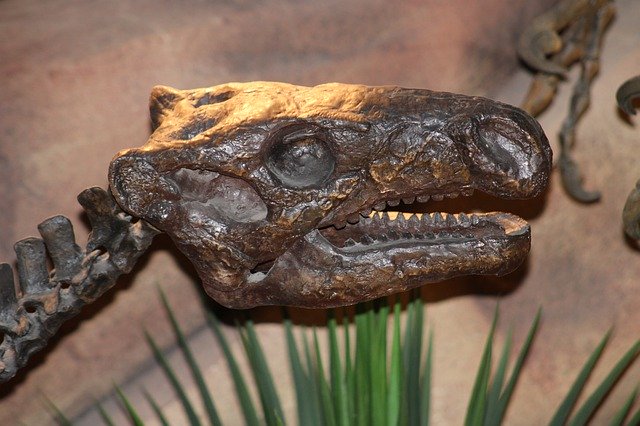Being somewhat of a science junky, I was fascinated by the recent report of DNA found in a duckbilled dinosaur skull estimated to be 75 million years old. While researchers assure us that Jurassic Park scenarios are not possible, it is entertaining, nonetheless, to consider the implications of this discovery.
Just last year scientists announced new research concerning dinosaur fossils in North Dakota. Paleontologists claim that these remains document the exact day 66 million years ago when an asteroid hit the planet and wiped out nearly all life. In addition to charred trees and burnt debris, there also seemed to be a massive tsunami that devastated much of the continent.

Although many scientists are rejoicing over this news, others are more skeptical since the exact location has been kept secret preventing others from studying the find and drawing their own conclusions. Such discoveries can indeed be interpreted in various ways since fossils don’t come with explanations or birth certificates.
Is it possible that the evidence of extreme heat came from nearby volcanoes and that the tsunami might have been connected to the global flood of Noah’s day? The signs for such a cataclysmic flood are abundant and an objective review of them begs for better explanations than we have received from evolutionists.
Although many scientists claim that it takes millions of years for fossils to form while animals are slowly buried in rock that eventually turns to stone, these animals seem to have been buried instantly and fossilized quickly. That is vitally necessary, in fact, for dead animals do not lie exposed for long without decaying or being consumed by scavengers. The old story about how dinosaurs were slowly covered by successive rock layers over millions of years just doesn’t hold water.
Some dinosaurs were fossilized in the very act of giving birth while others were fossilized fighting. In one instance, one large reptile is forever frozen getting the better of a weaker one whose death was hastened not by his enemy, but by rapid inundation and burial by sediment. There is no way that these animals were slowly covered over millions or even hundreds of years. It had to have happened very suddenly.
In addition, a few years back, Mary Schweitzer discovered unfossilized soft tissue and actual red blood cells in a Tyrannosaurus Rex bone. Prior to this find no one would ever conceive that soft tissue could last beyond a few thousand years, but suddenly evolutionists swallowed 68 million years in a single gulp in order to keep their theory alive.
Such rapid burial combined with soft tissue finds and the recent DNA discovery all point to a devastating flood not that long ago. Instead of recalibrating their thinking concerning soft tissue, evolutionists would be better served to reconsider their theory of millions of years.
Regardless of one’s views concerning earth’s age, the Apostle Peter connects Noah’s past flood with Jesus’ future return. In his second letter, he accurately predicts that scoffers will come in the last days denying Jesus’ second coming while deliberately forgetting God’s original creation and worldwide flood. Peter assures his readers that just as the flood came unexpectedly to judge earth’s wickedness, Jesus will return unexpectedly to restore God’s true kingdom.
As I contemplated how some dinosaurs were forever frozen fighting with each other, it made me consider what I want to be doing when Jesus returns. This too Peter addresses by writing, “Since everything will be destroyed in this way, what kind of people ought you to be? You ought to live holy and godly lives as you look forward to the day of God…” I pray that if Jesus returns in my lifetime He will find me faithfully serving and obeying Him and not squabbling with others, disobeying in some way, or causing problems for someone else.
As we consider that any day could be our last, it’s important to give thought to what we would like to be found doing when our time comes. And then do it.
Blessings, George